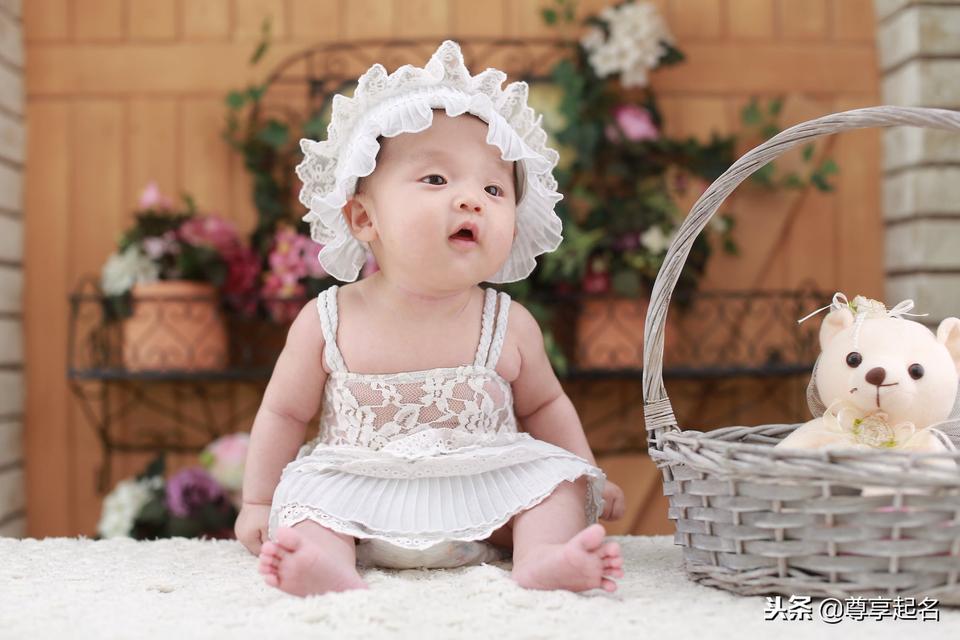表現誇年輕人有上進心奮鬥的經典句子
加油!努力!去搏擊長空!相信自己是最棒的!努力做到最好,減少誤差!有不怕苦不怕累不怕髒的精神!奮鬥到最後!!!!!描述奮鬥的句子 關於奮鬥的好句 1、人生沒有停靠站,現實永遠是一個出發點。 無...打雷的好詞好句
1、傾刻間,閃電亂揮,這兒一道,那兒一道,煞是怕人,雷聲像爆炸似的轟隆隆地響起。2、過了一會兒,電光一閃又一閃,驚雷一個又一個,把大地震得發抖,天空也被嚇得直哭,大顆大顆的雨點落了下來。3、閃電過...- 0
- 0
- 0
- 0
- 0
2020年新春經典對聯七字_春節對聯大全
對聯,漢族的傳統文化之一,是寫在紙、布上或刻在竹子、木頭、柱子上的對偶語句。以下是小編整理了關於2020年新春經典對聯七字_春節對聯大全,希望你喜歡。 新春經典對聯七字【篇一】 上聯:新春新景...- 0
- 0
- 0
- 0
- 0
一個人傷心孤單說說心情短語
一、你不能要求擁有一個沒有風暴的人生海洋,因為痛苦和磨難是人生的一部分。一個沒有風暴的海洋,那不是海,是泥塘。二、人生中一切美好的時刻,我們都無法留住。人人都生活在流變中,人人的生活都是流...- 0
- 0
- 0
- 0
- 0
qq愛情留言短語
1、暗戀是成功的啞劇,說出來就成了悲劇。2、愛很難投入,但一旦投入,便更難走出。3、輸家總是抱怨自己,其實不過未盡全力。4、聽自己愛的人,訴說他的愛人有多難過。5、因為很在乎,所以沒有厭惡,而是心疼。6...- 0
- 0
- 0
- 0
- 0
一早上的勵誌語錄
一早上的勵誌語錄:1、失去金錢的人損失甚少,失去健康的人損失極多,失去勇氣的人損失一切。願你一早上有一個充滿勇氣的自己!2、為明天做準備的最好方法就是集中你所有智慧,所有的熱忱,把今天的工作...- 0
- 0
- 0
- 0
- 0
描述江南女子的詩句
1:江南逢李龜年【唐】【杜甫】岐王宅裏尋常見,崔九堂前幾度聞。正是江南好風景,落花時節又逢君。2:蘭燼落,屏上暗紅蕉。閑夢江南梅熟日,夜船吹笛雨蕭蕭。人語驛邊橋。憶江南【唐·溫庭筠】3:細細望去,荷花潔...- 0
- 0
- 0
- 0
- 0
傷感唯美的句子 再大的挫折,我們也有重新開始的資本
1.麵對,不一定最難過。孤獨,不一定不快樂。得到,不一定能長久。失去,不一定不再擁有。不要因為寂寞而錯愛,不要因為錯愛而寂寞一生。 2.真正的愛情,不是一見鍾情,而是日久生情;真正的關心,不是你...- 0
- 0
- 0
- 0
- 0
姐妹一起玩開心的句子
和姐妹一起的朋友圈怎麼發?來看看小編整理的關於姐妹一起玩開心的句子吧1、兩姐妹在一個城市真好,周末在一起吃喝玩樂,時間過得特別快啊!2、姐妹在不用說太多話,隻因突然想出門溜溜,就爽快的答應。...- 0
- 0
- 0
- 0
- 0
句子有哪些表達方式
有五種表達方式1、記敘2、說明3、議論4、描寫5、抒情(1)敘述。敘述是寫作中最基本、最常見的一種表達方式,它是作者對人物的經曆和事件的發展變化過程以及場景、空間的轉換所作的敘說和交代。(2)描寫。描...- 0
- 0
- 0
- 0
- 0
七天七世紀 我寧願就此長眠不醒
七天,整整一個星期沒有見到你,你說的沒錯,我想你想你想你想你......想瘋了。淚,從指間無聲的滑落,在命運的曠野中,我們短短的交錯而過,如今卻各自流離失所。想你的第七個夜裏,想你想瘋了自己。我...- 0
- 0
- 0
- 0
- 0
關於微雪的經典語錄 我們都要麵向太陽,驕傲的活著
一個人最大的缺點,不是自私、多情、野蠻、任性,而是偏執地愛一個不愛自己的人。 結局和過程都有了,再去糾纏,連自己都覺得貪婪。 我們都要麵向太陽,驕傲的活著 喜歡的歌,靜靜地聽,喜歡的人,遠遠...- 0
- 0
- 0
- 0
- 0
關於格言的作文.結尾
司馬遷在《史記·貨殖列傳序》中曾經寫道:天下熙熙,皆為利來,天下攘攘,皆為利往。也就是說,人們的一切活動都離不開一個字——利!(毅力,是千裏大堤一沙一石的凝聚,一點點地累積,才有前不見頭後不見尾...- 0
- 0
- 0
- 0
- 0
qq失戀說說女生心情句子 因為你我懂得了成長
1.回頭想想,還是那句話,你擁有過我的愛,你擁有過很好很好的福氣。你錯過了,現在,我要把給別人了。2.其實並不是所有人都有那麼好的脾氣,如果你恰巧碰到了那個願意遷就你的人,記得別磨光了他的感情...- 0
- 0
- 0
- 0
- 0
挫折的好詞好句
1、我們關心的,不是你是否失敗了,而是你對失敗能否無怨。2、成功要用理想去引路,要用創造力去開拓,要用汗水去澆灌。3、人的生命似洪水在奔流,不遇著島嶼、暗礁,難以激起美麗的浪花。4、什麼是路?就是說...- 0
- 0
- 0
- 0
- 0
2019聖誕節同學整人祝福短信_聖誕節同學經典簡短祝福寄語
聖誕節,是紀念耶穌誕生的日子,在西方社會裏,是一個傳統的宗教節日。這一天和平安夜,都是教會進行紀念活動,比如通過做彌撒這一類的方式來紀念耶穌的誕生。以下是小編整理了關於2019聖誕節同學整...- 0
- 0
- 0
- 0
- 0
人生不能靠心情活著,而要靠心態去生活
一、請允許我塵埃落定,用沉默埋葬過去。二、太多的情話讓人矯情,太多的哲理讓人麻木,太多的現實讓我們顯得世故。三、其實有時候在街上手機不離手,不是有多想玩,而是為了掩飾自己沒人同行的尷尬。——此...- 0
- 0
- 0
- 0
- 0
相信愛情的句子 堅持情感語錄
1、愛情是一種感覺,甜甜的、澀澀的、麻麻的、暖暖的,有時也會是酸酸的、苦苦的、冷冷的。就算兩個人分開了,可是感覺還在,我還是相信愛情的。2、不是時代遠離了愛情,而是許多人從一開始就沒有想過用一顆...- 0
- 0
- 0
- 0
- 0
佛說勵誌語錄經典短句
佛說勵誌語錄經典短句1、世界上沒有個永遠不被毀謗的人,也沒有個永遠被讚歎的人。當你話多的時候,別人要批評你,當你話少的時候,別人要批評你,當你沈默的時候,別人還是要批評你。在這個世界上,沒有...- 0
- 0
- 0
- 0
- 0
















 楓葉繞城
楓葉繞城
 _微涼先森
_微涼先森
 黑人不一樣的白
黑人不一樣的白
 孤寂de心
孤寂de心
 想嗦不能嗦不能嗦又想嗦
想嗦不能嗦不能嗦又想嗦
 阿瑪尼羅西尼什麼泥巴
阿瑪尼羅西尼什麼泥巴
 喂---出來啦
喂---出來啦
 長腳俠
長腳俠
 神評啊哈哈哈哈
神評啊哈哈哈哈
 人間哪有真情在4764797
人間哪有真情在4764797
 有內涵的純妹
有內涵的純妹
 屬於個魜的世界
屬於個魜的世界
 -_-宅_
-_-宅_
 奔波爾霸愛上霸波爾奔
奔波爾霸愛上霸波爾奔
 奰嶏鑝亟磯
奰嶏鑝亟磯
 求皮鞭就蠟燭
求皮鞭就蠟燭
 任時光匆匆8666557
任時光匆匆8666557
 請輸入----
請輸入----
 大驢的
大驢的
 你係瞎子嘛
你係瞎子嘛
